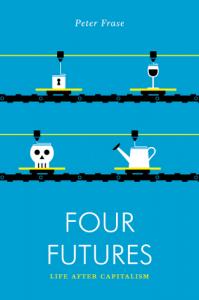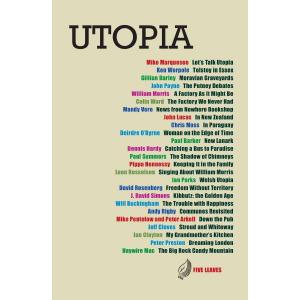Echoing the opening lines of The Communist Manifesto, Peter Frase opens this book with the claim that ‘two spectres are haunting the Earth’: ecological catastrophe and automation.
The first is a crisis of scarcity – of fresh water (think melting glaciers), fish (think ocean acidification and overfishing), habitable places to live (think rising sea levels and rising temperatures) and so on. The second is a crisis of abundance – the prospect that our technology could soon…




